
Reliable authorities - a good thing, but what if the authority is strongly lost, the king is clearly naked, and everything is still shy to say to each other about it?
We have chosen ten most, probably revalued classic works, considered great to talk about why they are important for history and culture, but in vain are still great.Lion Tolstoy "War and Peace"
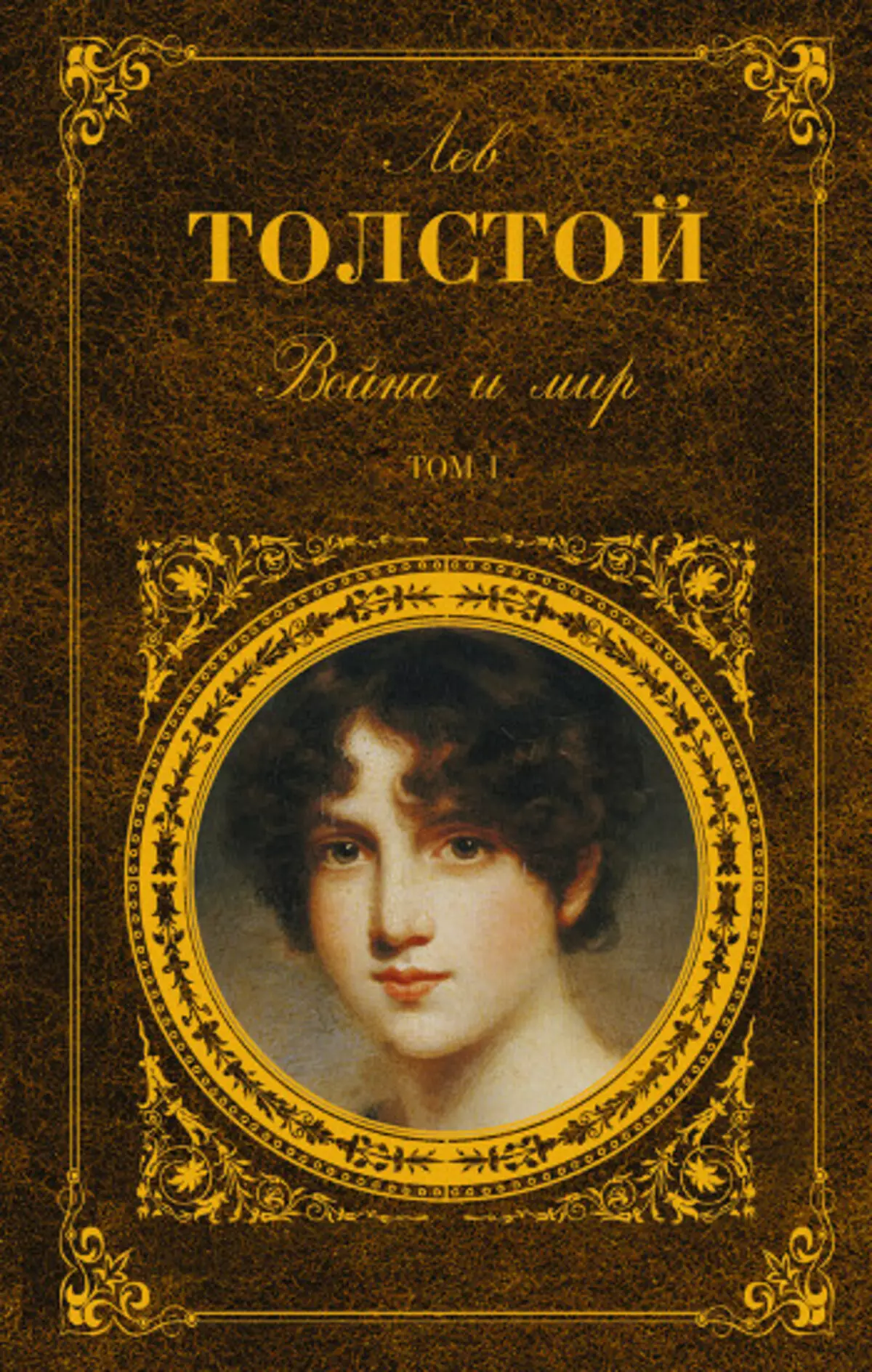
Although the definition of "our all" fastened for Pushkin, but the Russian man behaves as if she really is "our all" is a lion Tolstoy, and especially his multi-volume romance. To tell why this novel is great, everything goes into move. And, of course, the size itself, and the definition of the corruption of the language as "Great", and delight about every idea of the author's plan (Wow! The idea !!! Such a rare thing in the literature), and the image of Natasha Rostova, because it is nice.
In fact, the size is strongly imposed in the inserts of the moralization text, performed by the narrowing and sense of author's own importance. If you want to see a brilliant corruption, it is better to read Andrei Platonova, at the thick one, it is a maximum of an excuse. The greatness of the idea "And let my positive heroes become more slower than the normal, and the negative instantly" and the likeness of the most doubtful, the greatness of the ideas expressed (women - fools! Especially those that are not a fool! Soldier - wise! Intellegents - lit!) - Doubt even more .
It seems that the Russian intelligentsia clung from a great desire to have a Russian epic, which can be trembling and which can be shaked in front of others. Complexes of our ancestors are understandable, like all the human, but after the appearance of a "quiet Don" to cling to "war and the world", you can only inertia. "Silent Don" became the fact that the "war and the world" was just risen to become: Russian Epos, well written, not diluted by liters of the author's ego, really showing Russian soul. Ah, yes. There, there is no Kawainaya Thirteen-year-old Natasha Rostova. This, of course, changes the case, yes-aa.
Lion Tolstoy "Anna Karenina"
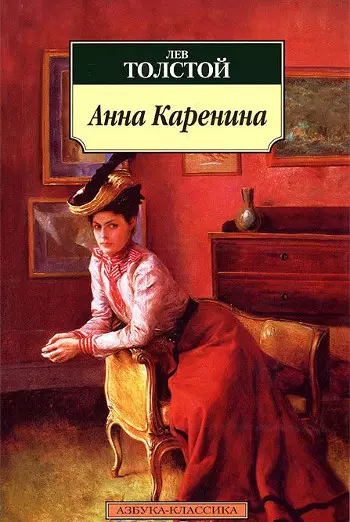
Since we have already appointed someone's Roman Great, Ida to rejoice and worship everything that came out of the same feather. For example, the story of Anna Karenina, something like a less extended version of Madame Bovarie and more literary - soapy operas from the life of rich and unfortunate senory. Actually, the novel and wrote in the genre of the series for ladies, "with a continuation", with confusing love and complex feelings. But Tolstoy would not be fat, if it were not for opening the vices and poke into them the nose of heroes and heroines of a secular drama. For this novel and recognized immediately socially. Although more like the fact that we have a book about how Tolstoy does not like people if they have a habit of underwear.
If you want to read something in the spirit "Yes, they all males there and swirls and with fat silent," we have enough to open any news portal from the life of Ceblebritis. The Russian soul "Karenina" does not open, the scurry has long been not relevant and the more eternally, the language is still clouded. If we were not worn with a novel, we ourselves, it is unlikely that it will attract such attention of foreign fans of Russian literature. And if you want a good mixing of drama, lush female skirts, strong passions and at the same time increasing relevance, it is better to read the "thunderstorm pass" Emily Bronte - a book on the cycle of violence in the family and society. True, the lucky end to the Russian reader will seem vulgar, but after all, and Tolstoy Happi-End did not neglect. Remember Natasha Rostov with pellecoms in punching.
JER David Sellinger "Above the Great in rye"
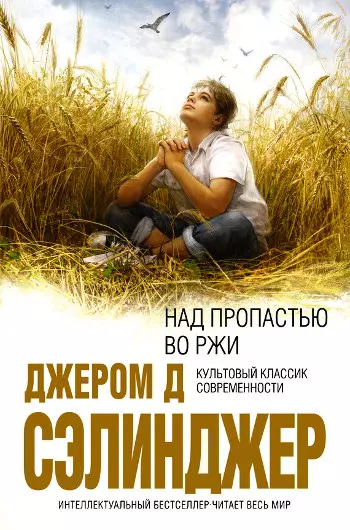
Well, it is very pleasant to read the book that a good person can get confused, to get it, to swell and everything is bad and inconvenient. Especially at the moments when they are lost in life. But for some reason, Lermontov a guy who does on an ongoing basis, directly shown as an asshole (reading the hero of his time ", do not miss the author's preface warning from excessive pity for this" hero "). And the Sullinger has a solid "you do not understand me" and in general a look at the world from this asshole as from a good person. No matter, there is no other idea in the book in the book, and the artistic embodiment of the one that is, good, but does not pull on the great. For great and filling it is necessary more. In general, we have already hinted that much better describes the same thing.
Ernest Hamingway "Goodbye, weapon!"
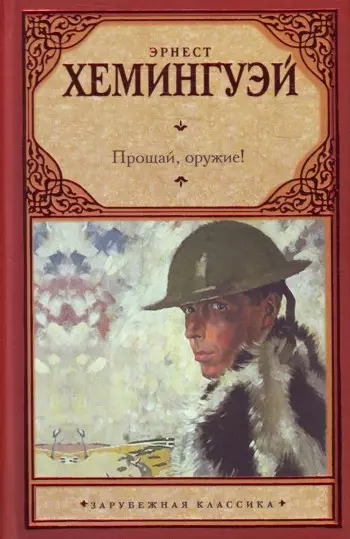
Another brilliantly clumsy, only in addition to the resistant smell of smeaching from him there is also amber fume. The idea "in the war is bad, I wounded there" it is difficult to name the original, although in general we agree with it. What else is there? The White Middle Class Guy, which suffers, because there is a circle of bad people, because at first he is in war and he is bad, and then his woman took and died. Also not very original, the literature is overflowing by the sufferers of the middle class by white guys. We have nothing against such a plot, but again, the idea is difficult to call not that outstanding, but with something different from other mainstream works. However, the ending is prescriptive. But it is distinguished by a good work from the bad, and not great from just good.
Ernest Hamingway "Old Man and the Sea"
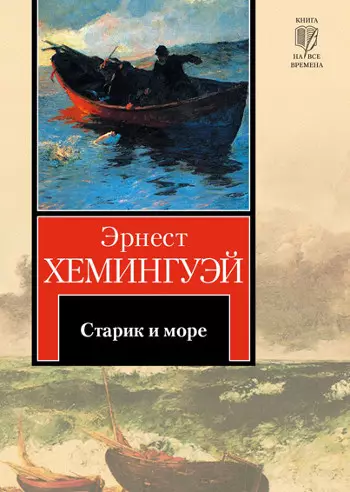
Large tragedy of a little man who, in general, just a very bad day, and no big tragedy. And not about the greatness of the male spirit, but about stubbornness, which, in general, did not lead to anything. It is described except well. But, consider us literary incense, it is unclear why the Nobel Prize here is. All the same thing and even a similar language (also English ... It is difficult to stay from the joke) wrote Jack London. Packs.
Ivan Bunin "Dark Alleys"
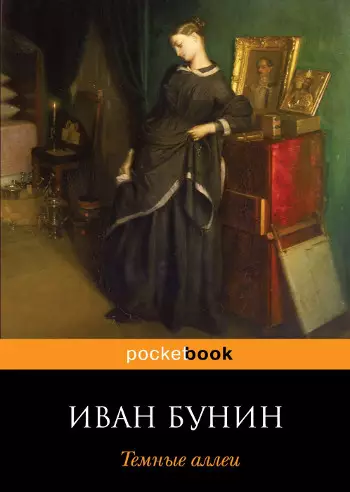
We are both about the entire collection and about the story that includes it. Russian emigration was rushed with him, as with a written Tuba - this is, in the end, our Bunin, the last (or penultimate, no matter) of the boulder of the true, low-tech Russian literature. In the nineties in Russia began to wear with white-immigrants and uncritically adopted all their complexes and views. No words, many Russian writers and poets replenished in emigrations replenished the treasury of Russian literature. Here you and TEFFI, and Tsvetaeva, and Nabokov. But those who watched only in the past and only with the senile loss of any schildren and any mud, which, in the past, was, speaking metaphorically, just continued the ninth and tenth times to brew the same tea bag. In general, you want a good Russian emigrant literature - we have already called whom it is better to read.
Gustave Flaubert "Mrs. Bovari"
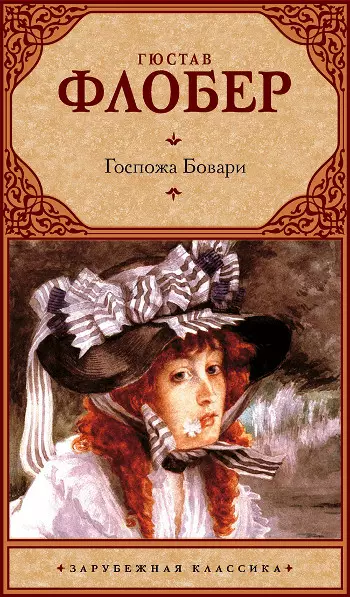
Already when we mentioned that Anna Karenina is a secular English version of Madame Doctors, it was possible to understand how we treat the accusatory novel of Flaubert. No, we generally treat French realism and to the idea of making a woman a central character not only a love novel. But Flaubert has the same trouble that Tolstoy: He does not like living people and does not know how to hide it. The tragedy of aimlessness in the life of a prone to romanticism, to the movement of the soul of a woman who does not have the opportunity to make money on her dreams, normally divorce and live with novels, turned into ordinary Samadavinovat. It is especially disgusting that the dispense of the preparation was completely with the life of a real woman - only the name is changed. And the society is clear why the novel handled: Hooray, Hurray, how well it is shown that all the troubles from the Bab and the fact that they want a lot! Yes, and the language is good, what is, that is.
Herman Melville "Moby Dick"
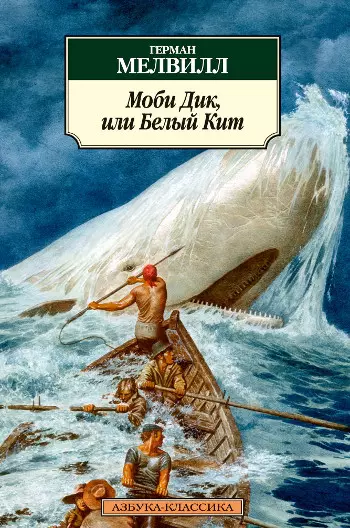
All American literature rose from Mobi Dick. Especially "old man and the sea." The plans of Melville in the novel a lot, the author had something all the time, referring to the Bible at all can be sought in every second offer and find two at once - and this is traditionally considered a sign of a special depth of text. The trolling of the modern author of the reader, constantly waiting for some morality, taking and pulls on a separate prize of sympathy. Nevertheless, the novel spoils the author's braving by knowledge in the field of natural sciences, which are particularly ridiculous at the time when the truths of the nineteenth century are false theories. Reading what to say, as a result, an entertaining and really nothing understood by contemporaries, but in the twentieth century they were worn with him only because at the beginning of the twentieth century the world was obsessed with the idea of superhuman, hidden in man, admiring the power of the spirit, even if ( And especially if) it goes beyond the boundaries of mental normality. On this ideological wave, the novel and surfaced. His own strength, I'm sorry, did not have enough.
Antoine de Saint-Exupery "Little Prince"
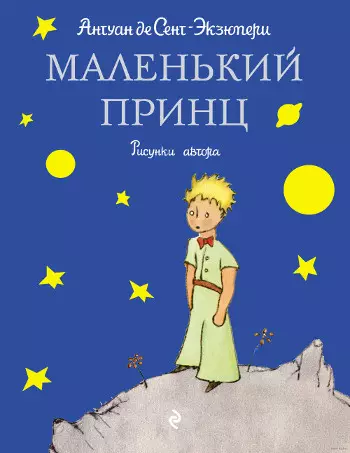
Each in life, it happens, I want sentimentality. Swamp over the bright death of the child, surprised beautifully decorated banalities or even a deliciousness. "Little Prince" generally consider a children's book - since everything is fabulous and a boy, but this is, on the contrary, a book is strictly for adults who want to talk a little with their inner child. Even the beginning is built as to refer to this inner, and not at all a real child. What to say, the aphorisms in the book are good, the triaisms are true (on that they are the triaisms), and the senimentality is at least you eat. But in fact, the whole story that women (represented by the Rose) are cute, but capricious twists, and a man (quite visually represented by a boy) may be so offended, throw a helpless rose one, go through other roses to admire, wipe it, wipe there, and Then beautiful, but I dare to die - so that it was a pity, but that Rosa realized and back to take with delight. Nicely probably was, Durose, one on an empty asteroid, where with you and worms, eating leaves, take some kind of? I understood now, what is he good? In. Consider, heard herself, and he is here beautiful in the scarf stands and everything will be forgiven, by the way. Sweatly written hymn infantilism.
Miguel Cervantes "Don Quixote"
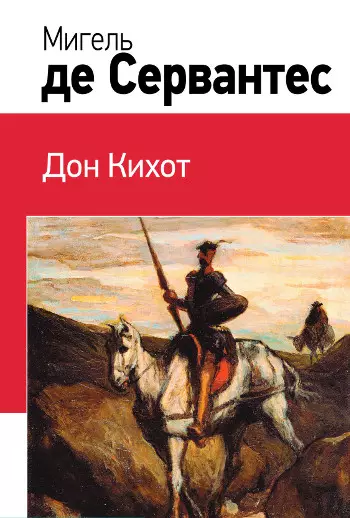
Spaniard took, sat down and wrote a taught satire to supermodic romance about knights. Ridiculed in the tail and in the mane, and very well. You know why we are actually wearing this book, as with great? Because we thoroughly ignore the author's intent, by the way, quite clearly embodied, and, as often happens, we see what we would like to see. As in the "Hero of our time," we want to see really unhappy, incomprehensible, such a cute sufferer, and our desire to eat sentimentality and romanticism turns Don Kihota from a pitiful, although the unenkly in general, but the old man's deepest A true knight, spinning literally contrary to all (especially contrary to suffering and inconvenience of varying). While the "idiot" of Dostoevsky is much more about the knighthood, and there they never ignore everything that he inevitably accompanies. Eh, we.
